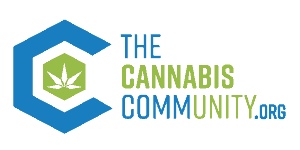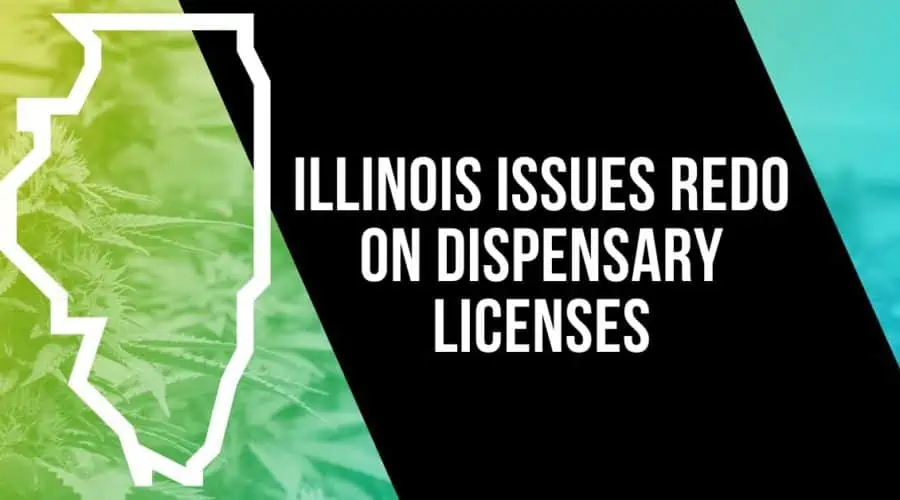Illinois Governor Announces “Partial Do-Over” to State’s Dispensary Social Equity Licenses
Table of Contents
PRESS RELEASE
First published on Capitol Fax, the press release reads a statement from the Illinois Governor, JB Pritzker that said, “Following a careful examination of the process to award the first round of conditional adult-use cannabis dispensary licenses after receiving feedback from community leaders and stakeholders, Governor JB Pritzker and the Illinois Department of Financial and Professional Regulation (IDFPR) announced additional steps to ensure the process moves forward in a fair and equitable manner.
These steps will ensure applicants whose applications did not achieve the maximum score of 252 points will receive a supplemental deficiency notice and a score sheet identifying each exhibit to the application on which they lost points. After receiving the supplemental deficiency notice, applicants will have an opportunity to respond that amends the application exhibits or ask IDFPR to conduct a rescore of their original application exhibits if they believe there was an error or an inconsistency in the scoring.
“As we worked with the General Assembly, equity and fairness have always been at the heart of our approach to legalizing cannabis, and when we heard significant concerns from numerous stakeholders about the process to award dispensary licenses, I said we needed to take a pause to fix their concerns, within the bounds of our landmark law,” said Governor JB Pritzker. “While this process remains a marathon and not a sprint, we believe these new steps will inject more equity and fairness in the first round of license awards and provide insight as we improve the process for future rounds.”
The supplemental deficiency notices and score sheet will notify applicants which application exhibits did not receive a perfect score. For each exhibit, an applicant can either submit additional information, request a rescore of the exhibit, or do nothing and keep the original score on that exhibit.
IDFPR will review all timely responses to the supplemental deficiency notices and will issue a final score for each application. The Department will then conduct the lottery for Conditional Licenses in accordance with its tiebreaker rules. The Department will provide detailed instructions for applicants, including all deadlines, in the coming weeks.
“The Pritzker administration continues to work towards creating the most equity-centric cannabis industry in the nation. From day one of the administration’s work with the legislature, equity has been at the center of this legislation from day one of negotiations as we worked to create a system that prioritizes social equity applicants and reinvests revenues in communities hardest hit by the war on drugs,” said Toi Hutchinson, Senior Advisor to the Governor on Cannabis Control.
“Before awarding the next 110 dispensary licenses, as the statute requires, the State will conduct a disparity study to better understand how this new industry is working and correct any structural challenges to equity as we move forward in implementing the law.”
This supplemental process is designed to ensure the Cannabis Regulation and Tax Act is implemented in a fair and equity-centric manner as intended by both the administration and the General Assembly and will be conducted in accordance with the Act.
Applicants will not be permitted to change the owners or ownership percentages identified on their original application in an attempt to qualify for social equity status, resident ownership status, or veteran ownership status if the original owner or group of majority owners on the application did not fall into those categories. The points allocated for these categories are outlined in the Act and can only be changed through the legislative process.
Following awarding the first 75 licenses, the Act provides that IDFPR must conduct a disparity study, which will be a comprehensive evaluation of the adult-use cannabis market. Based on the results of that study, additional measures will be proposed to improve equity and inclusion in the market further. The administration has already suggested steps for the General Assembly to take to improve the process going forward, including providing that all applicants who meet or exceed a cut-off score will advance to the lottery and limiting the number of applications one entity can submit.
IDFPR received 2,588 cannabis dispensary applications from 937 applicants, more than double the number of dispensary applications that have been submitted to any other state awarding a limited number of dispensary licenses. The applications also far surpass the 221 applications submitted to the state for medical cannabis licenses in 2014. The vast increase in the number of applicants reflects the significant steps taken in the Act to ensure a wide variety of applicants were given an opportunity to participate in this new industry.
In 2019, Governor Pritzker signed the Cannabis Regulation and Tax Act into law, the most equity-centric cannabis legislation in the country. In addition to committing to conduct a disparity study, the administration offered lower application fees, low-interest loans, and informational workshops on cannabis-related licenses to social equity applicants. The administration remains committed to upholding the intent and language of the law and ensuring the cannabis industry is equitable for all IL residents, regardless of background.
Under this new law, 25% of revenues collected from recreational cannabis sales are being directed to communities that have been disproportionately impacted by the justice system through the Restore, Reinvest and Renew (R3) Program. The innovative R3 program recently announced $31.5 million in grant opportunities to organizations working in historically underserved communities.
Governor Pritzker is also working with State’s Attorney Kim Foxx, the Prisoner Review Board, and state’s attorneys to expunge the records of non-violent offenders with a cannabis related conviction, with over 11,000 citizens already seeing their records expunged.
WHAT THIS MEANS
1. Social Equity applicants must still have a veteran on their applications in order to obtain a perfect score.
2. A perfect score will seemingly still be required to participate in the lottery.
3. Many will still lose in the lottery process, leaving hundreds of applicants where they started.
4. Those without a veteran will not be allowed to add one, effectively preventing them from participating in the lottery.
Check back for more updates as we explore what this means for the future of Illinois’ social equity.

